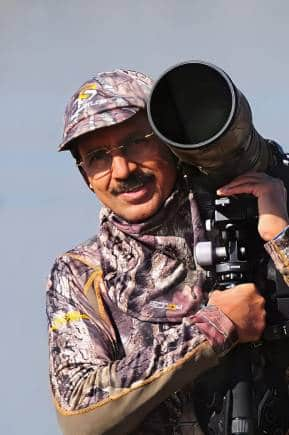
Note to readers: Morning Stars is a series of interviews with achievers across fields about their morning routine and how they get ready for the day ahead.

When it comes to matters of the heart, no one knows better than Dr Ramakanta Panda, considered No. 1 heart surgeon in India, who has remained the surgeon for many past prime ministers and celebrities in the country. A huge believer of exercise Dr Panda introduced yoga and pranayama to his mornings 20 years ago and has followed it up with a largely plant based diet. In a candid conversation, the chairman of Asian Heart Institute Mumbai lets us in on his morning routine and some simple and sensible ways to stay heart healthy.
Are you an early riser?
Kind of. Most of the days I work very late. By the time I finish, it’s usually 1-2 in the morning. But I am usually up by 7 am.
What are your mornings like?
I start my morning with exercise and yoga. It’s a non-negotiable part of my day. I can do with less sleep but not without my exercise and yoga. I have a gym at home and start with 30 minutes of aerobics, followed by weight training on alternate days and then end with yoga — asanas, pranayama and meditation. I am a very strong believer of yoga and pranayama and have been doing it ever since I started my hospital Asian Heart Institute in 2002. I advise all my patients to start yoga and pranayama.
Even on days that I reach home late and have to return to the hospital early, I sacrifice on an hour of sleep to exercise. That one hour of exercise and yoga gives me better health than an hour of extra sleep.
How has yoga and pranayama helped you in your work and in life?
It helps me tremendously to deal with stress, reacting to adverse situations and for good sleep. Pursuing a hobby also helps to reduce stress. My main hobbies used to be listening to music and reading books. But these days I am actively involved in wildlife conservation and that’s become a passion and hobby. Every fortnight I spend two days in the jungle. It energises me.
Is breakfast a part of your morning routine?
Yes. For me a good breakfast is lot of fruits and protein in the form of egg white omelette. No tea or coffee.
 Not many know that Dr Panda is also an accomplished wildlife photographer.
Not many know that Dr Panda is also an accomplished wildlife photographer.
What happens on your day off?
I generally travel to a wildlife sanctuary for photography and conservation work. Last weekend I was in Tadoba distributing 400 saplings and yesterday, on Saturday, I will at Chilika Lake by 5.30 in the morning. I have reserved Satpura Wildlife sanctuary for the next weekend.
How do you make time for your passion in spite of being so busy?
You have to take time out for yourself. Hobbies and passion expand your mind. Photography has helped me focus better in my medical profession too. As you delve deeper into an unknown subject, you tend to look at life from a broader perspective as well.
 A leopard in Kenya's national park clicked by Dr Ramakanta Panda.
A leopard in Kenya's national park clicked by Dr Ramakanta Panda.
What were mornings like when you were growing up?
I grew up in a small village Damodarpur in Odisha where everyone went to sleep really early. So much so that 8 pm felt like midnight! Our mother was very strict — what you’d call in modern language a combination of tiger and elephant mom (laughs). So mornings were pretty regimental — wake up at 4am, study, shower, eat and go to school.
Lastly, any famous person you would love to have breakfast with?
Akshay Kumar. He’s the healthiest person I can think of.
 A lion at Masai Mara clicked by Dr Ramakanta Panda.
A lion at Masai Mara clicked by Dr Ramakanta Panda.
Heart healthy practices of Dr Ramakanta Panda
Long time ago, when I was in high school, I had read a short story by Rabindranath Tagore. The protagonist in the story tells his son — if costly medicines could save lives, why should kings and emperors die? That has been my mantra in life. It’s not medicines or doctors who prolong life. It’s the way you live your life that can either prolong or cut short your life.
There are four things that are extremely important to maintain good health. These include regular exercise, some activity to reduce stress (for me there’s nothing better than yoga to reduce stress) good eating habits and, lastly, adequate sleep.
Eat how our ancestors used to eat 100 years ago. If you must eat carbohydrates go for complex carbohydrates like quinoa or millets. Millets are the best form of carbohydrates. Rice is good. But not the basmati variety. Go for par boiled unpolished rice.
Stick to a largely plant based diet. There is increasing evidence to suggest that it’s good for the heart. You can eat non-vegetarian in the form of egg whites, chicken breast, etc.
Say no to processed foods like maida. It’s poison for the body.
Reserve sweets to once a week or fortnightly indulgence. I do it too and call it my ‘sinday’.
Sleep is extremely important. I also do something called yoga nidra. If you do it correctly, an hour of yoga nidra is equivalent to four hours of peaceful sleep. On the days when I am running short of sleep, I do a 45 minutes of yoga nidra in my office which refreshes me for the rest of the day. This is something I strongly recommend to all my patients.
Discover the latest Business News, Sensex, and Nifty updates. Obtain Personal Finance insights, tax queries, and expert opinions on Moneycontrol or download the Moneycontrol App to stay updated!